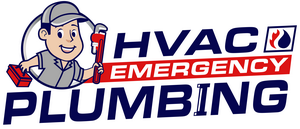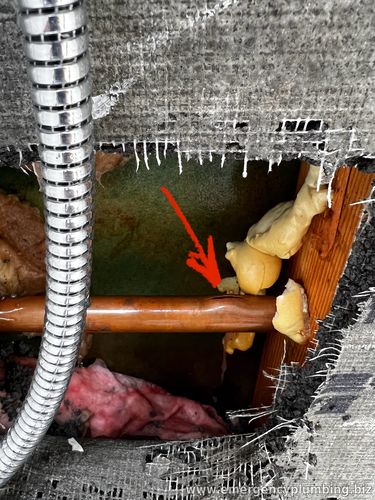11:39 PM How to Get Ready for Winter: A Plumbing Perspective Part I | |
How to Get Ready for Winter: A Plumbing Perspective for Chicago and the Northwest Suburbs
As winter approaches in Chicago and its Northwest suburbs, homeowners face a unique set of challenges. The frigid temperatures, icy conditions, and frequent snowfall can wreak havoc on plumbing systems if they aren’t properly prepared. With temperatures regularly dropping below freezing, it’s essential to winterize your home to avoid costly plumbing repairs and potential water damage. This guide will cover the most important steps homeowners should take to protect their plumbing from the brutal Chicago winter. From insulating pipes to preparing your water heater, we’ll explore everything you need to know to keep your plumbing in top shape all season long.
1. Insulate Exposed Pipes One of the most common plumbing issues during the winter is frozen pipes. When water inside pipes freezes, it expands and can cause the pipe to burst, leading to flooding and significant water damage. To prevent this, it's crucial to insulate any exposed pipes, especially those located in unheated areas like basements, garages, and crawl spaces. How to Insulate Pipes: - Pipe insulation sleeves: Available at hardware stores, these foam tubes can be easily slipped over exposed pipes. - Heat tape: For particularly vulnerable pipes, heat tape can be wrapped around them. This tape is electrically powered and keeps the pipe warm enough to prevent freezing. - Seal gaps: Use caulk or expanding foam to seal any gaps around pipes where cold air might leak in. Even a small draft can cause pipes to freeze. Key Areas to Insulate: - Basement and crawl spaces - Garages - Exterior walls - Under sinks, especially those located on outside walls
2. Disconnect and Drain Outdoor Hoses Outdoor water hoses are especially susceptible to freezing during winter. If left connected, any water inside can freeze, expand, and damage not just the hose, but the faucet or pipes leading into the house as well. To avoid this, take these steps: - Disconnect all garden hoses. - Drain any water remaining in the hoses. - Store hoses in a dry location for the winter. - Install frost-proof spigots or use faucet covers for extra protection. Additionally, consider turning off the water supply to outdoor spigots entirely and draining any remaining water from the line. This ensures that no water will be left to freeze.
3. Service Your Water Heater Chicago winters demand a lot from your water heater. It needs to work harder to heat up cold water coming into your home, which can increase the risk of breakdowns if it’s not properly maintained. Before the cold weather sets in, have a professional plumber inspect and service your water heater to ensure it’s in top condition. This includes: - Flushing the tank: Sediment buildup at the bottom of your tank can reduce efficiency and shorten its lifespan. Flushing the tank helps remove these deposits. - Checking the anode rod: This rod helps prevent corrosion inside the tank. If it’s worn down, it should be replaced. - Testing the pressure relief valve: This valve prevents the tank from over-pressurizing, which could lead to a dangerous situation. - Inspecting for leaks: A small leak can turn into a big problem during freezing temperatures. Have a plumber check for any signs of leakage. If your water heater is more than 10-12 years old, it might be worth considering a replacement before winter hits, especially if it’s showing signs of wear. Modern water heaters are more energy-efficient and can better handle the demands of winter.
4. Install Pipe Insulation in Your Attic While most people focus on the basement or ground-level pipes, the attic can also be a vulnerable area for pipe freezing. Many homes in Chicago and the Northwest suburbs have plumbing that runs through unheated attics. When the outside temperature plummets, this can lead to pipes freezing and bursting in these spaces. Installing insulation in your attic around any plumbing is a critical step to avoid major issues. Make sure that any water lines running through the attic are properly insulated and that the space is well-ventilated to prevent moisture buildup.
5. Winterize Your Sump Pump Sump pumps are a crucial component for many homes in the Chicago area, especially those located in low-lying or flood-prone areas. However, they can be vulnerable during the winter, especially if water in the discharge line freezes. To winterize your sump pump: - Check the discharge line: Ensure that it’s clear of debris and sloped correctly so water can drain out easily. - Add insulation to the discharge line: This will help prevent freezing. - Test the pump: Pour water into the sump pit to make sure the pump is working properly. If it doesn’t activate, it may need to be repaired or replaced. Install a backup battery system: Power outages during winter storms are common. A backup battery will keep your sump pump running even if the electricity goes out, preventing basement flooding.
| |
⏰ Dispatcher support 24/7
📞 224-754-1984CALL ☎ Subscribe 👆 FORUM 🗣
North Shore, Northwest suburbs of Chicago, IL
Next & Previous posts
| Total comments: 0 | |


